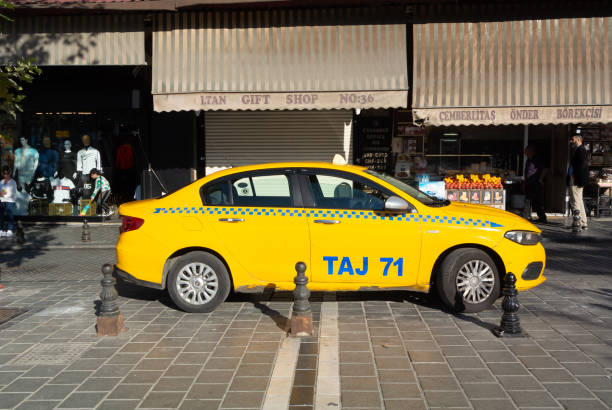
Addressing Accessibility and Affordability in Makkah to Madinah Taxi Fare
The pilgrimage from Makkah to Madinah, which begins in the Saudi Arabian heartland, is a travel that holds great significance for millions of Muslims worldwide. Even though this trip has enormous spiritual significance, there may be difficulties due to practical factors like transportation expenses. This article explores the affordability and accessibility in Makkah to Madinah Taxi Fare, providing information and advice for both tourists and pilgrims.
The Importance of Accessibility
Accessibility encompasses more than just physical ease of movement; it extends to financial feasibility as well. For many pilgrims, particularly those traveling from distant lands, the cost of transportation between Makkah and Madinah can be a significant concern. Addressing this issue is crucial to ensure that the pilgrimage remains accessible to all, regardless of economic status.
Factors Affecting Taxi Fare
Several factors contribute to the variability of taxi fares between Makkah and Madinah:
· Distance:
The distance between the two holy cities plays a significant role in determining the fare. Makkah and Madinah are approximately 450 kilometers apart, and taxi fares are often calculated based on distance traveled.
· Time of Travel:
Peak travel seasons, such as Ramadan and Hajj, can witness a surge in taxi fares due to increased demand. Similarly, traveling during off-peak hours may result in lower fares.
· Type of Taxi:
Different types of taxis, ranging from standard sedans to luxury vehicles, are available for the journey. The choice of vehicle can impact the overall fare.
· Additional Charges:
Extra charges, such as tolls, airport fees, and waiting time, may also contribute to the total fare.
Strategies for Affordability
To address the affordability of Makkah to Madinah taxi fares, consider the following strategies:
Advance Booking:
Booking taxis in advance through online platforms or travel agencies can often result in discounted fares. This allows travelers to compare prices and choose the most cost-effective option.
Shared Rides:
Sharing taxis with fellow travelers can significantly reduce individual costs. Many taxi operators offer shared ride services, enabling passengers to split the fare while still enjoying the convenience of door-to-door transportation.
Negotiation:
In some cases, negotiating the fare with taxi drivers can lead to lower prices, especially during off-peak hours or for longer journeys. However, it’s essential to ensure transparency and clarity regarding the final fare before embarking on the journey.
Public Transportation:
While taxis offer convenience and comfort, exploring alternative modes of transportation such as buses or trains may present more economical options for budget-conscious travelers. Public transportation networks in Saudi Arabia continue to expand, providing accessible routes between Makkah and Madinah.
Promoting Accessibility
Ensuring accessibility to Makkah to Madinah taxi fares requires a collective effort from various stakeholders:
· Government Initiatives:
Governments at both local and national levels can implement policies and subsidies to make transportation more affordable for pilgrims. This could include fare subsidies, transportation vouchers, or tax incentives for taxi operators serving pilgrimage routes.
· Community Support:
Religious and community organizations can establish assistance programs to support pilgrims with transportation costs. This may involve providing financial assistance, organizing group travel arrangements, or facilitating shared ride initiatives.
· Technology Integration:
Embracing technology can enhance accessibility by providing travelers with real-time information on taxi fares, routes, and availability. Mobile apps and online platforms can streamline the booking process and empower users to make informed decisions about their transportation options.
· Education and Awareness:
Educating pilgrims about their rights and options concerning transportation can empower them to make cost-effective choices. This includes providing information about fare structures, negotiation techniques, and available subsidies or discounts.
Exploring Sustainable Solutions
In addition to immediate strategies for affordability, it’s crucial to consider sustainable solutions that address long-term accessibility challenges:
Investment in Infrastructure:
Enhancing transportation infrastructure, such as road networks and public transportation systems, can lower operational costs for taxi operators and, consequently, reduce fares for passengers. Governments and private investors can collaborate to fund infrastructure projects that improve connectivity between Makkah and Madinah while prioritizing affordability.
Support for Local Entrepreneurs:
Encouraging the growth of local transportation businesses through training, funding, and regulatory support can stimulate competition and drive down prices. Empowering small-scale taxi operators and ride-sharing services can foster a more diverse and affordable market for transportation services.
Research and Innovation:
Investing in research and innovation aimed at optimizing transportation efficiency and reducing costs can yield breakthroughs that benefit both operators and passengers. This could involve exploring alternative fuel technologies, optimizing route planning algorithms, or developing innovative pricing models that reflect varying levels of demand.
International Collaboration:
Given the global significance of the pilgrimage to Makkah and Madinah, international cooperation is essential in addressing accessibility challenges. Sharing best practices, exchanging expertise, and coordinating efforts among countries can facilitate the development of more efficient and affordable transportation solutions for pilgrims worldwide.
Empowering Pilgrims Through Information
Empowering pilgrims with access to comprehensive and transparent information about transportation options is key to fostering affordability and accessibility:
· Digital Platforms:
Leveraging digital platforms such as mobile apps and websites can provide pilgrims with real-time information on taxi fares, routes, and availability. These platforms can also serve as a central hub for accessing travel tips, safety guidelines, and regulatory information relevant to transportation services.
· Educational Campaigns:
Launching educational campaigns targeted at pilgrims can raise awareness about their rights and options regarding transportation. Providing guidance on budgeting for transportation expenses, understanding fare structures, and navigating transportation networks can empower pilgrims to make informed decisions that align with their financial capabilities.
· Community Engagement:
Engaging with local communities and religious organizations can facilitate the dissemination of transportation-related information to pilgrims. Community leaders, imams, and volunteers can play a pivotal role in educating pilgrims about transportation options and facilitating access to affordable transportation services.
· Multilingual Support:
Recognizing the diverse linguistic backgrounds of pilgrims from around the world, providing multilingual support for transportation information can ensure that all individuals can access relevant resources and make informed decisions regardless of language barriers.
For Muslims worldwide, the pilgrimage from Makkah to Madinah is of great spiritual significance. For many pilgrims, however, affordable and easily accessible transportation is still a major worry. Through the application of methods like reservations in advance, carpooling, and bargaining, tourists can lessen the financial impact of taxi charges. Governments, communities, and technology companies must work together to improve accessibility and ensure that everyone can participate in the pilgrimage experience. We can improve the affordability and accessibility of the Makkah to Madinah route for future generations by working together and embracing innovation.





Leave Your Comment